Interrogation Technique. We continue on the detective route and I offer you another text that every criminalist should have in his library; a work by Juan José Bocaranda E., a prominent lawyer who serves as an academic and jurist. He is an author who has written texts related to various branches of law; and with this we are referring to civil, family and criminal law; which ratifies that his knowledge can be applied in any area. Now; in previous editions, we have presented literature of this nature and could not miss an extremely important text for those interested in the subject; we are talking about The technique of Interrogation, a book that is not only full of theories; but, as we navigate through its pages, the practice is evidenced with the presentation of cases related to the subject. What I like about this book is that the author invites us to analyze in detail the entire interrogation process, starting with the psychological overflow of the suspect and the staging of efficient methodologies to correctly obtain a confession. That is to say; we must take into account the emotions, motivations and details that may influence the answers of the interrogated; in short, we must enter the mind of the suspect if we want to have the expected success. On the other hand, if the interrogator only takes data and does not know how to read verbal and non-verbal language, does not interpret the expressions and does not adapt to the peculiarities of the case presented, he will simply waste all his time; in short, here we must be born strategists. 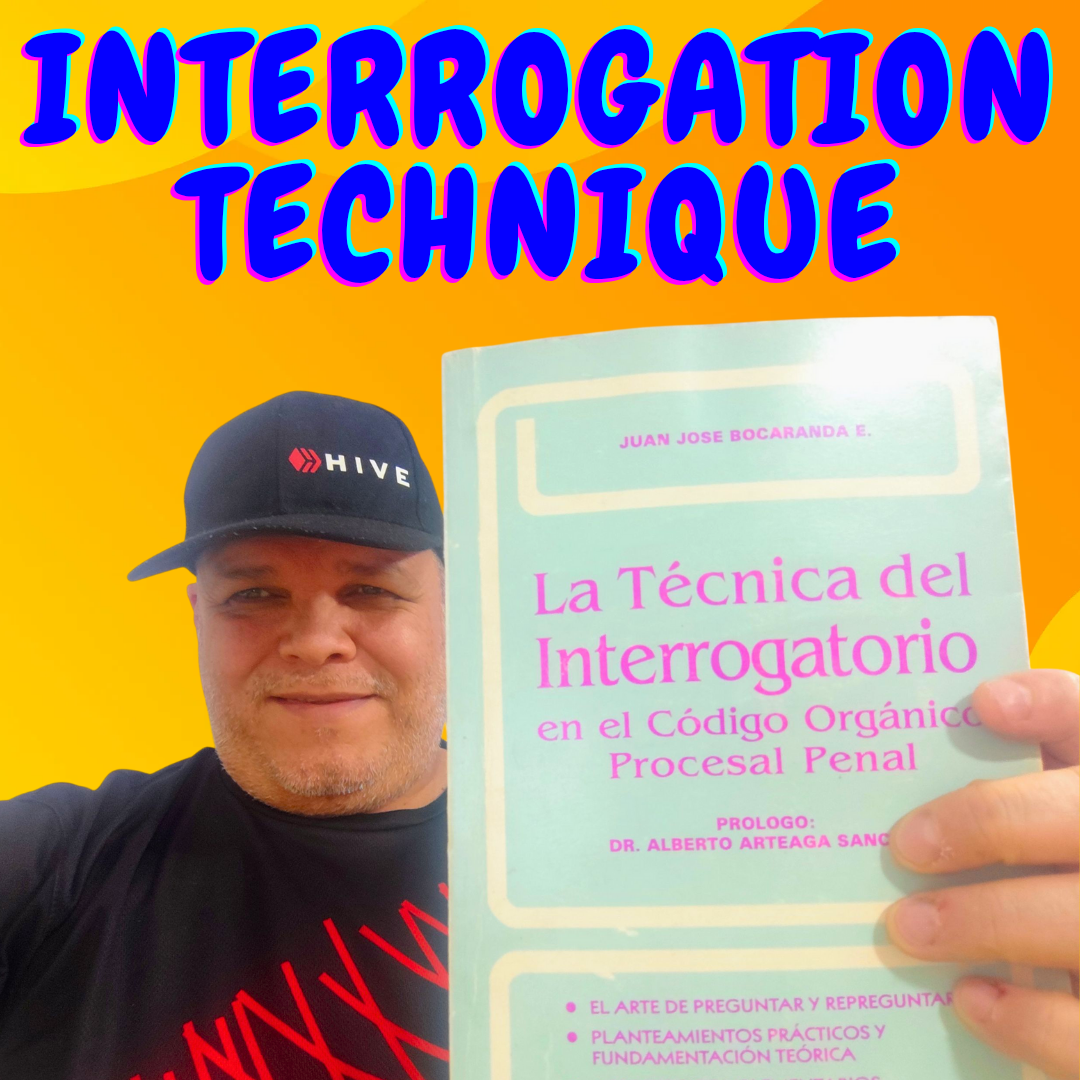Cover Edited In [Canva](https://www.canva.com/es_419/) 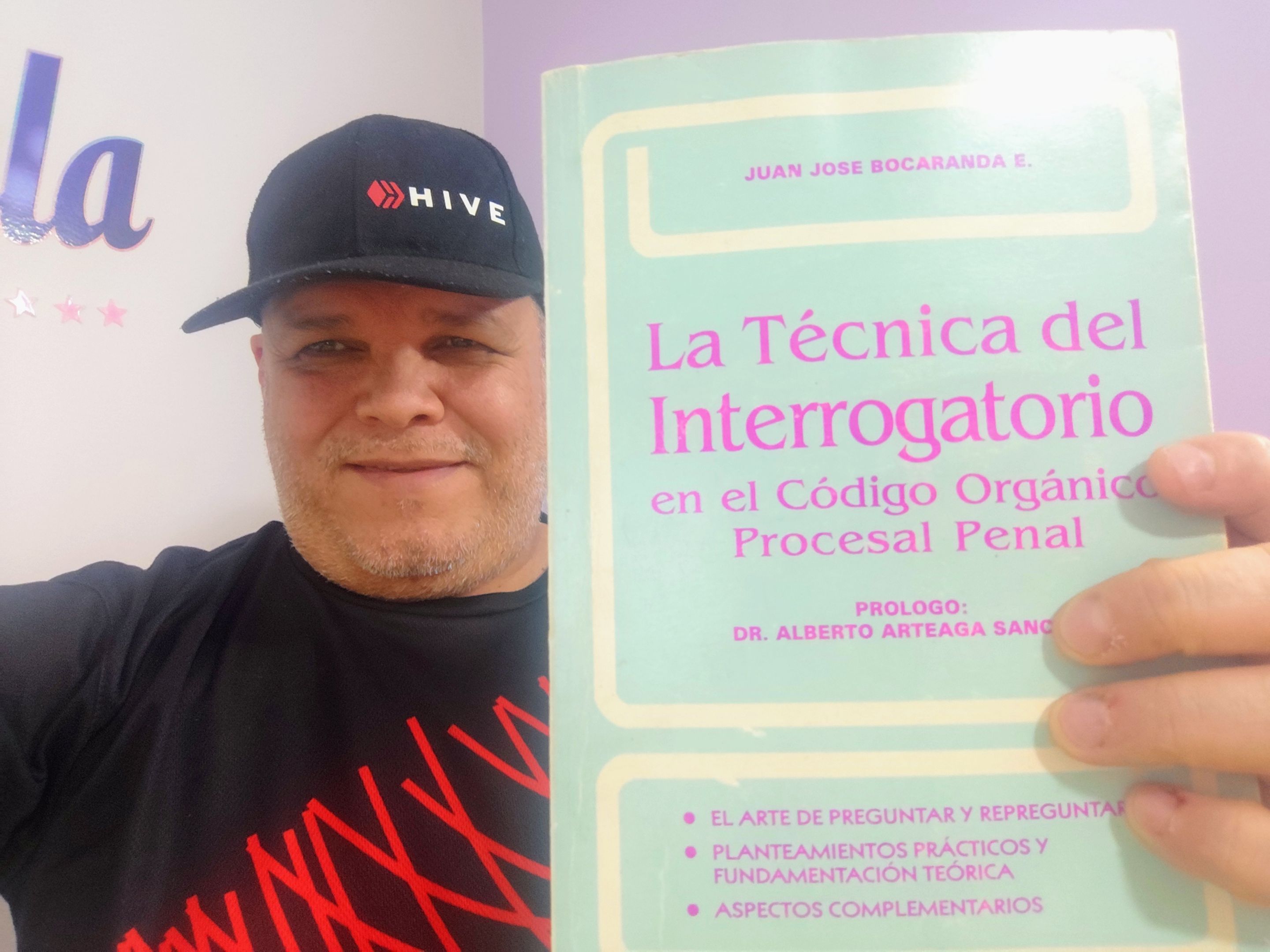 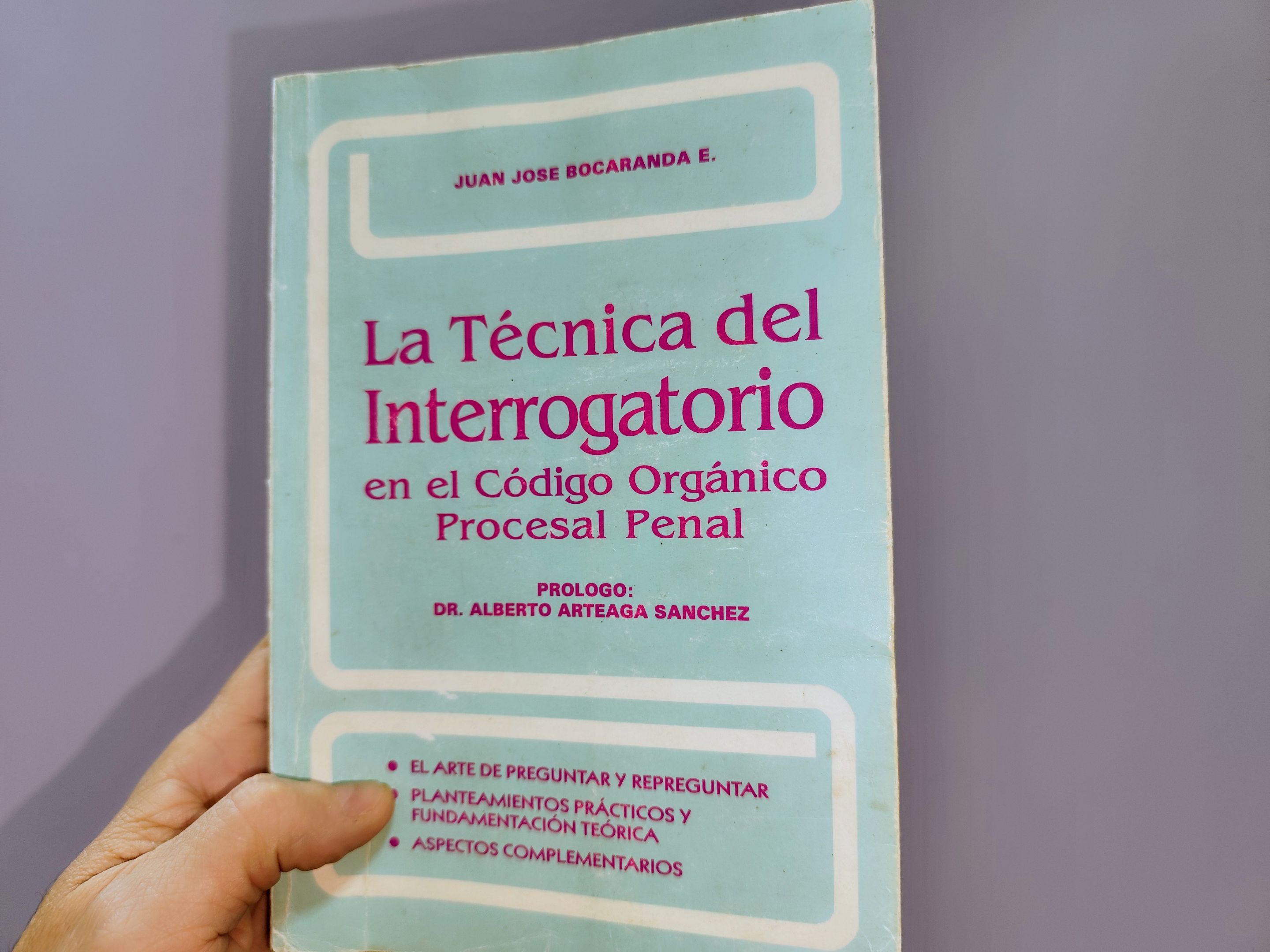 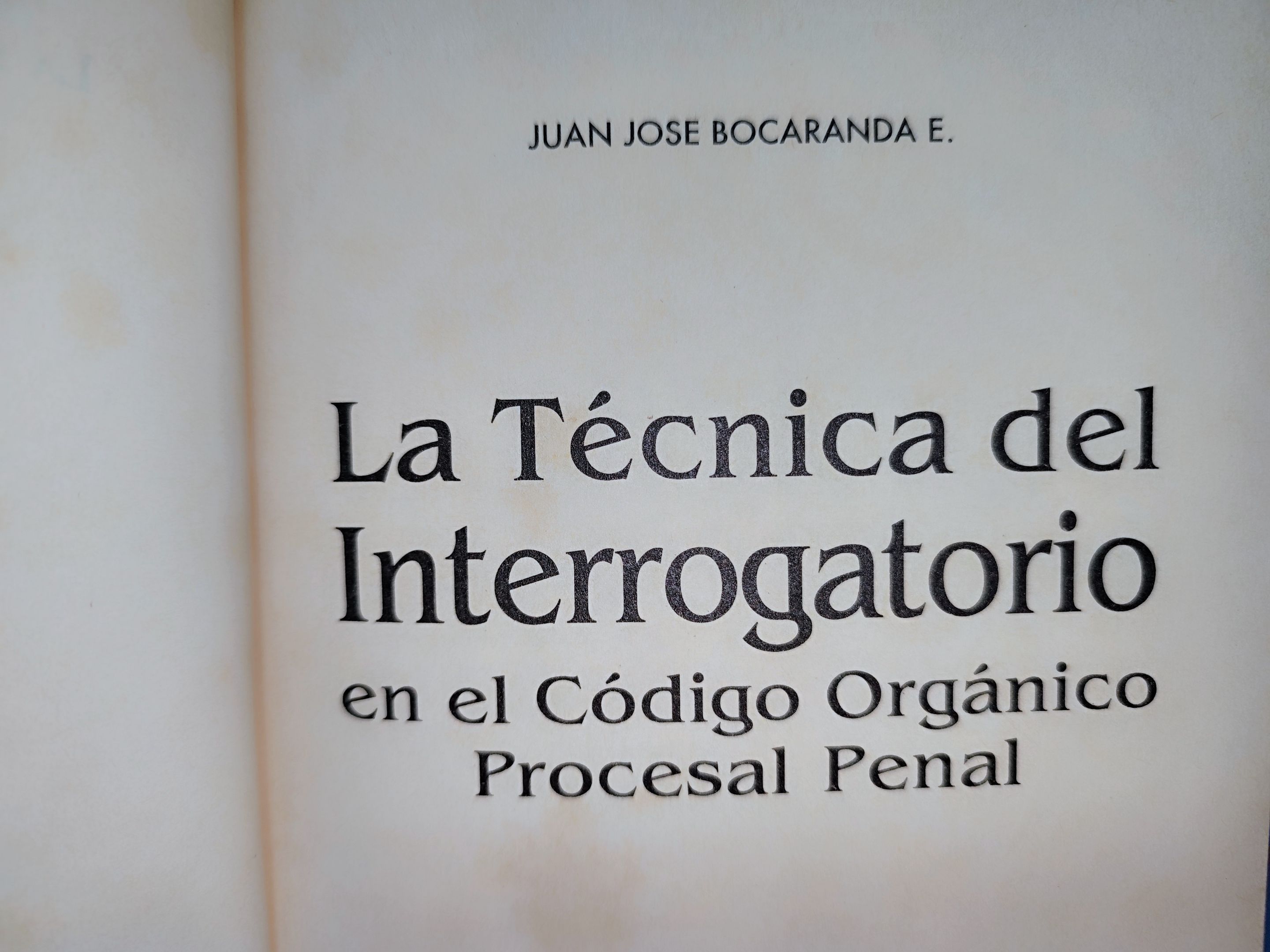 When we advance in the reading of our book, we quickly realize that at the time of conducting the interrogation, it must be framed in total legality. I say this because it is not enough to obtain a confession using illegal methods; moreover, the rights of the suspect must be taken into account in order to avoid methods that imply coercion, control and improper treatment of the interrogated. If the latter is carried out, the confession obtained may unfortunately be inadmissible. This means that an interrogation is not successful because of the illegality of the process, but it will be successful because of the intelligence of the interrogator and the most propitious thing is that he is able to establish a bond with the suspect so that he opens up to his questions; this is really very interesting. In this sense, the author also emphasizes that in certain cases the intuition of an official can work; however, he affirms that this is something of an unprepared interrogator, which is a symptom of improvisation. For Bocaranda, a successful interrogator must prepare the ground, a person who knows everything about the case, a person who is capable of preparing well-structured questions, a person who is capable of determining when a statement is ambiguous. That is to say; the interrogator must be prepared for any eventuality that may arise during the process; and above all, the interrogator must not neglect verbal and non-verbal language; he must select the right words, have a specific tone of voice, and never lose contact with the suspect. It is of vital importance that the interrogator achieves a bond of friendship with the suspect, so that he/she cooperates at all times and stays away from lying. 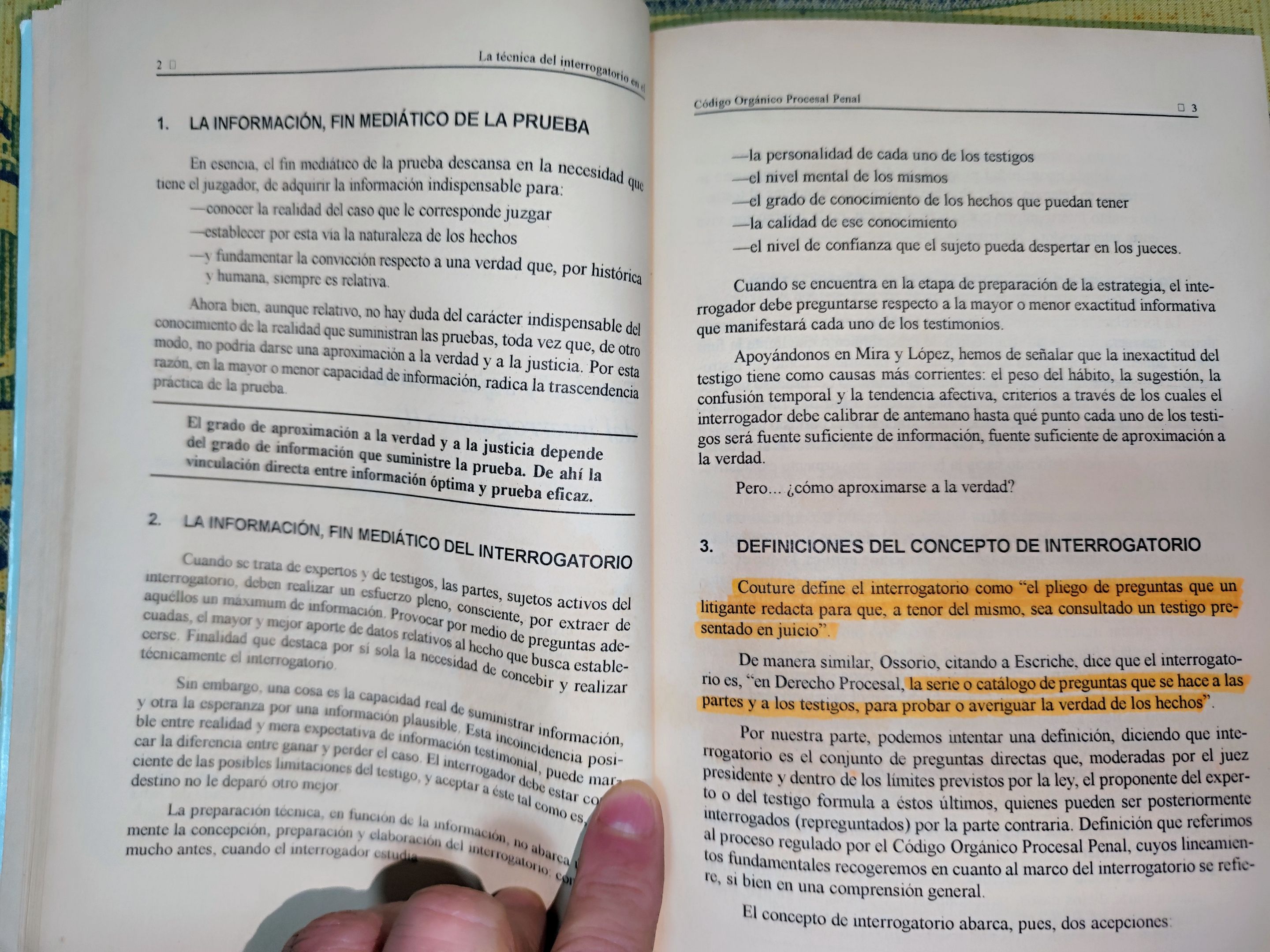 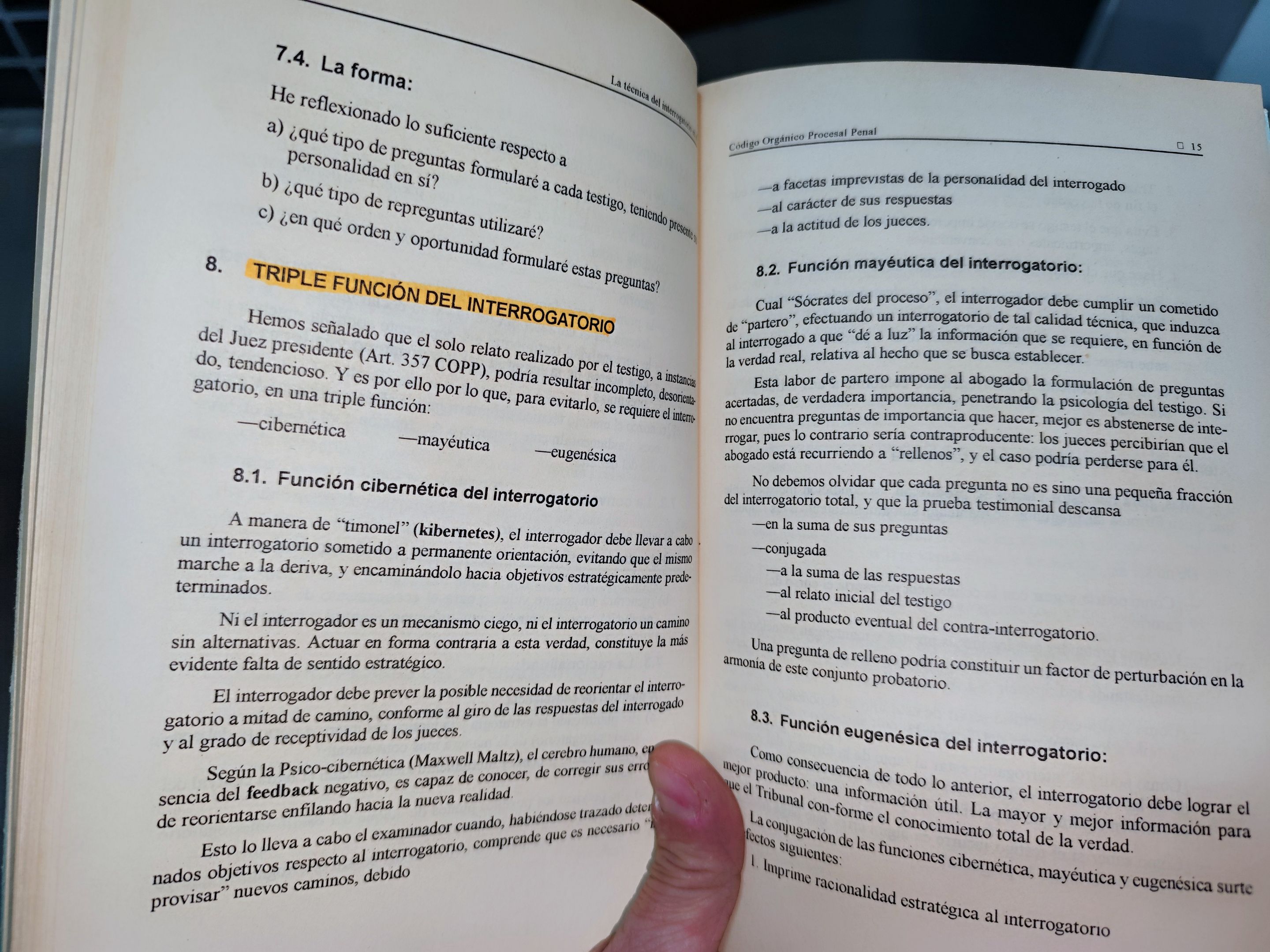 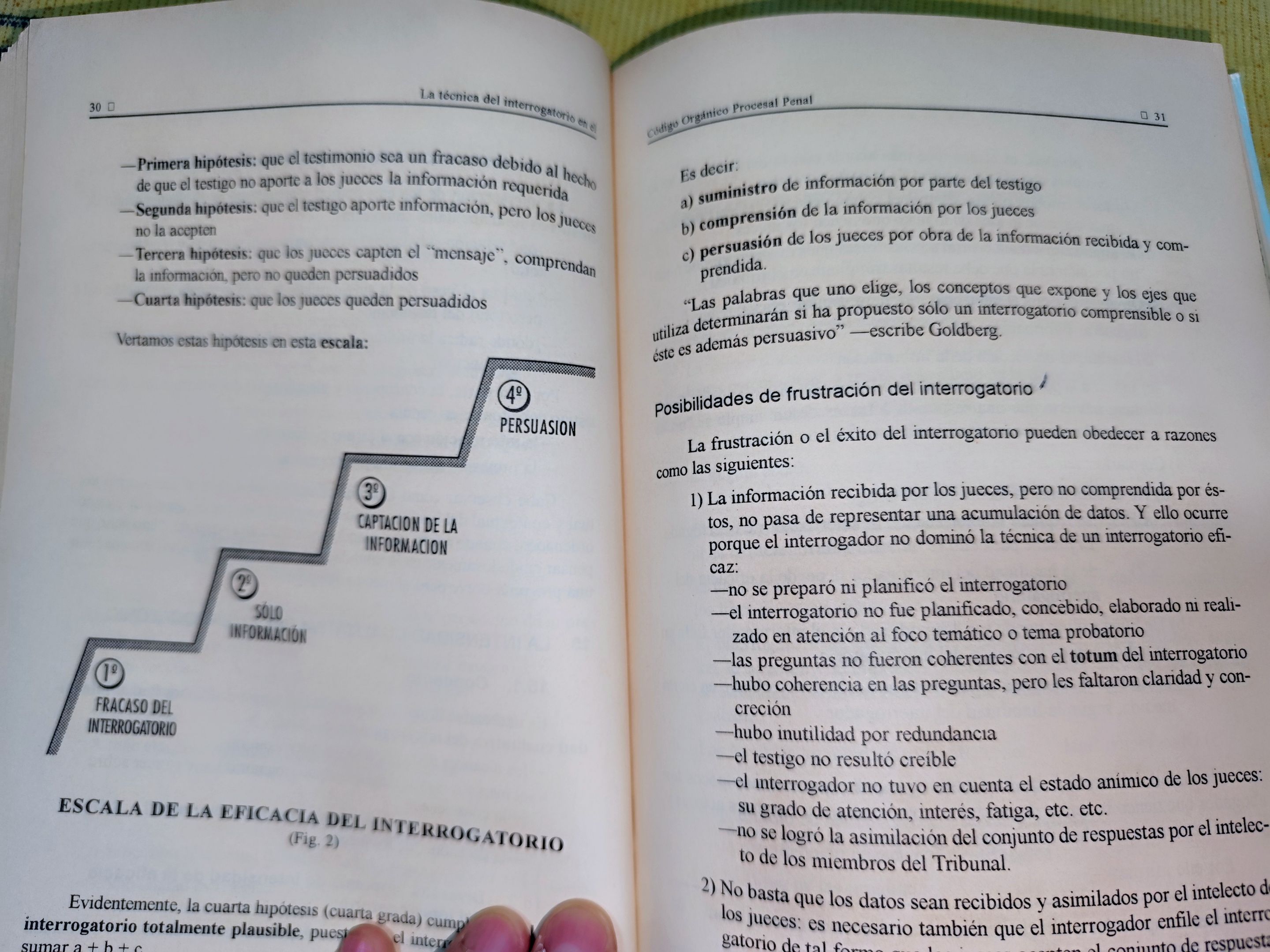 Another point that caught my attention is that many times we can say that the interrogations are made only to suspects; however, during the reading we can know that this is not so, since different types of interrogations are evidenced which can be applied to witnesses, suspects and even experts depending on the case that is presented. In this regard, it is logical that if a witness is interrogated, this would serve to learn more about the case or to reconstruct it; the opposite is the case with a suspect. And the most important thing that the interrogator must keep in mind is that he must know how to listen, that is to say, he must be concentrated in his words as well as in the words emitted by the interrogated. I liked this book as much as the others that I have presented, because I felt like a detective; even more when the texts are full of examples of real cases and this one in particular, has immersed models of questions that can easily be applied in an interrogation. It is simply a very good guide for anyone who is in this field and for those who are curious about it. In addition; the technological aspect also plays a great role in the interrogation technique; recordings, videos and the polygraph are tools that increase the success of the process; however, technology is a complement, since the human factor and the interrogator's skill are useful elements for the possible solution of the case. In general terms; the book is not only useful to learn how to ask questions, but to decode the truth and obtain answers that help to clarify the case. Well my friends, I think you are on your way to becoming good detectives; greetings to all and see you soon. 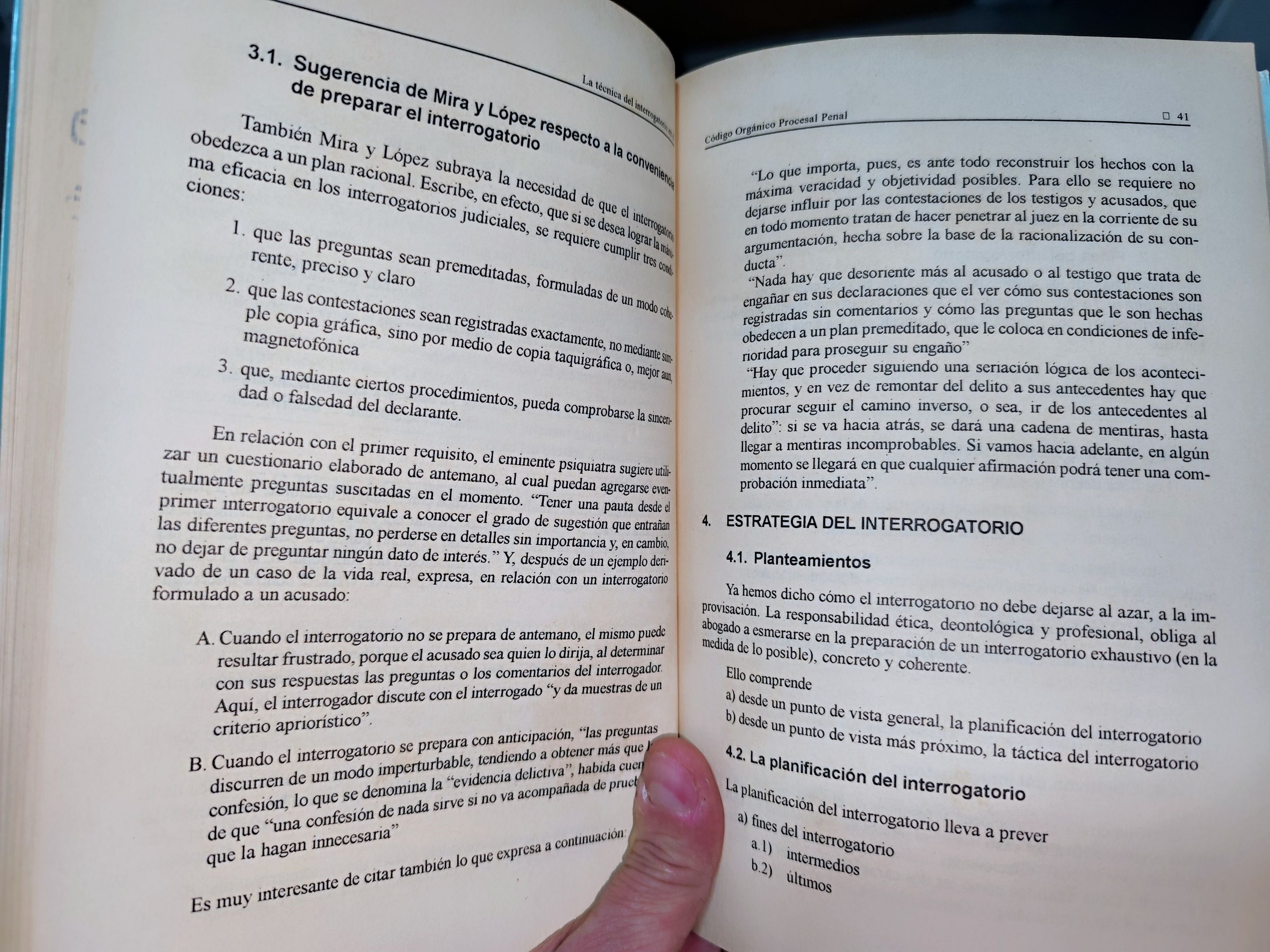 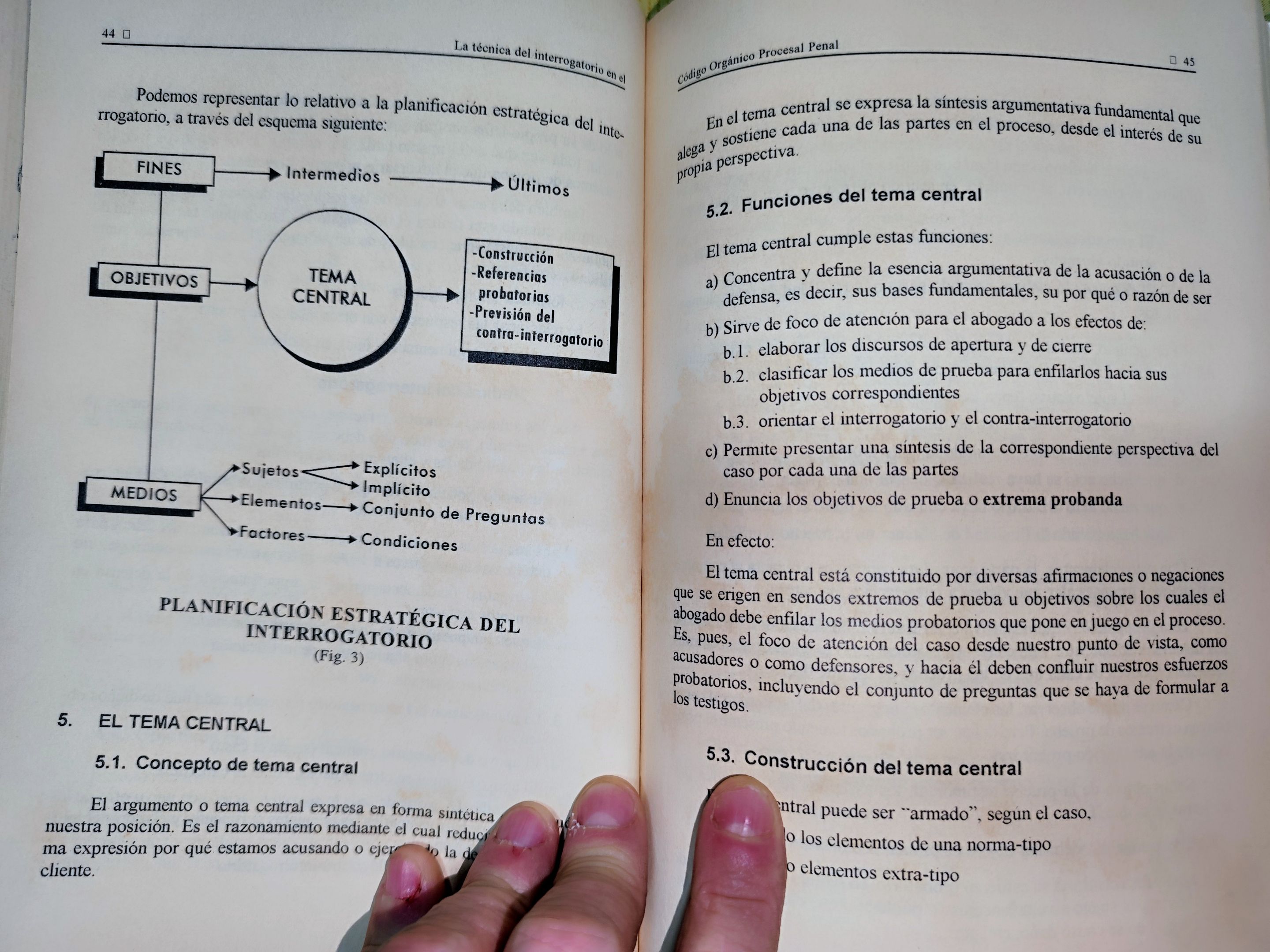 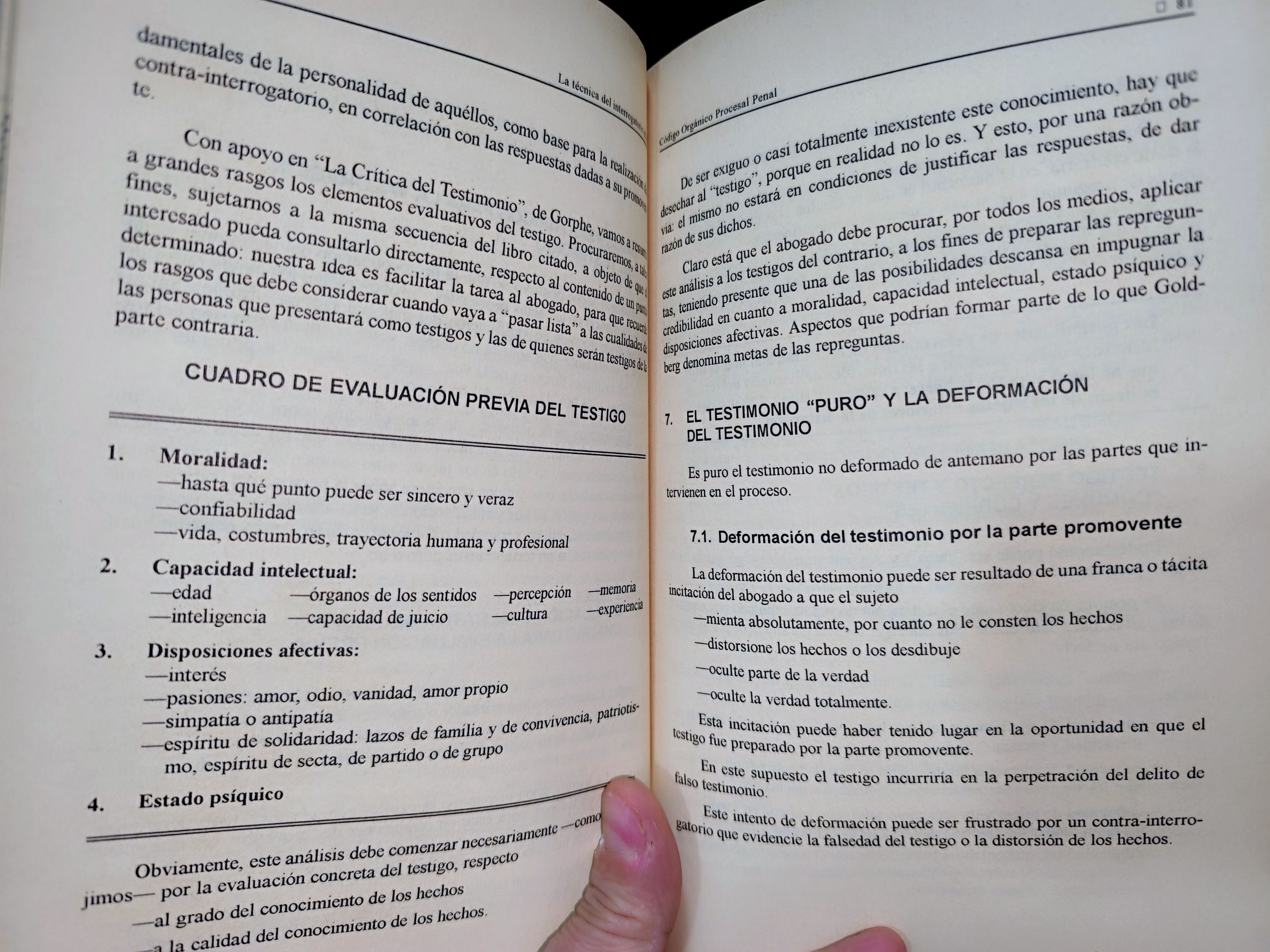    Pictures taken from my redmi note 13 pro 5g **Translated and formatted with [Hive Translator](https://hivetranslator.com) by @noakmilo
**
La Técnica del Interrogatorio. Continuamos en la ruta detectivesca y les ofrezco otro texto que todo criminalista debe tener en su biblioteca; una obra de Juan José Bocaranda E., destacado abogado que cumple funciones como académico y jurista. Es un autor que ha escrito textos relacionados a diversas ramas del derecho; y con ello nos estamos refiriendo al derecho civil, familiar y penal; lo que ratifica que sus conocimientos pueden ser aplicados en cualquier área. Ahora; en ediciones anteriores, hemos presentado literaturas de esta índole y no podría faltar un texto sumamente importante para los interesados en la materia; hablamos de La técnica del Interrogatorio, un libro que no solo está lleno de teorías; sino, que a medida que navegamos por sus páginas, se evidencia la práctica con la presentación de casos relacionados al tema. Lo que me gusta de este libro; es que el autor nos invita a analizar de forma detallada todo el proceso de interrogatorio; iniciando por el desborde psicológico del sospechoso y la puesta en escena de metodologías eficientes para lograr de forma correcta una confesión. Es decir; debemos tomar en cuenta las emociones, las motivaciones y los detalles que pueden influir en las respuestas del interrogado; en pocas palabras, se debe ingresar en la mente del sospechoso si queremos tener el éxito esperado. Por otra parte; si la persona que interroga, solo se limita a tomar datos y no sabe leer en lenguaje verbal y no verbal; no interpreta las expresiones y no se adapta a las peculiaridades del caso presentado; sencillamente perderá todo su tiempo; en fin, aquí debemos ser estrategas natos. 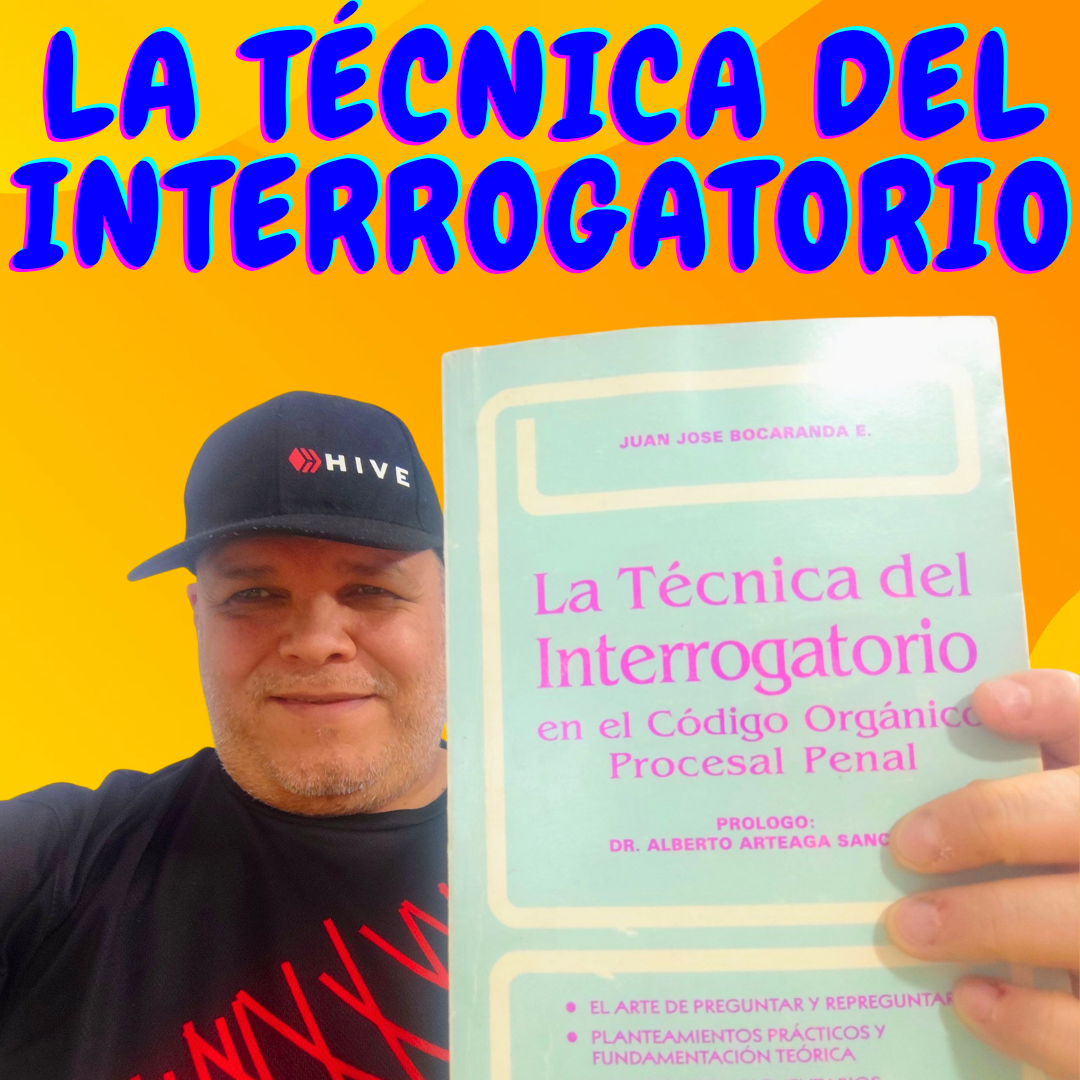Portada y video portada Editadas en [Canva](https://www.canva.com/es_419/)    Cuando avanzamos en la lectura de nuestro libro; rápidamente nos damos cuenta que al momento de realizar el Interrogatorio; éste debe estar enmarcado en la total legalidad. Digo esto; porque no basta con conseguir una confesión utilizando métodos ilegales; es más, los derechos del sospechoso deben ser tomados en cuenta, con el fin de evitar métodos que impliquen coacción, control y trato indebido hacia el interrogado. Si esto último es llevado a cabo; lamentablemente la confesión obtenida puede ser inadmisible. Esto quiere decir; que un interrogatorio no es exitoso por la ilegalidad del proceso, sino que será exitoso por la inteligencia del interrogador y lo más propicio, es que éste sea capaz de establecer un lazo con el sospechoso para que se abra a sus preguntas; de verdad que esto es sumamente interesante. En tal sentido; el autor también hace énfasis, que en ciertos casos la intuición de un funcionario puede funcionar; sin embargo, él afirma que esto es algo de un interrogador que no está preparado, eso es síntoma de improvisación. Para Bocaranda; un interrogador exitoso debe preparar el terreno, tiene que ser una persona que sepa todo sobre el caso, una persona que sea capaz de preparar preguntas bien estructuradas; una persona que sea capaz de determinar cuando una declaración sea ambigua. Es decir; el interrogador debe estar preparado ante cualquier eventualidad que pueda surgir durante el proceso; y sobre todo, que el interrogador no deje de lado el lenguaje verbal y no verbal; que seleccione las palabras correctas, que tenga un tono de voz específico, y que nunca pierda el contacto con el sospechoso. Es de vital importancia que el interrogador logre un lazo de amistad con el sospecho, para que coopere en todo momento y se aleje de la mentira.    Otro punto que me llamó la atención; es que muchas veces podemos decir que los interrogatorios se hacen solo a los sospechosos; sin embargo, durante la lectura podemos conocer que esto no es así, ya que se evidencian diferentes tipos de interrogatorios los cuales pueden ser aplicados a los testigos, sospechosos y hasta los expertos dependiendo del caso que se presente. En torno a ello; es lógico que si se interroga a un testigo, esto serviría para conocer más sobre el caso o hacer una reconstrucción del mismo; caso contrario ocurre con un sospechoso. Y lo más importante que debe tener presente el interrogador; es que éste debe saber escuchar, es decir, tiene que estar concentrado tanto en sus palabras, como en las palabras emitidas por el interrogado. Este libro me ha gustado tanto como los otros que he presentado, porque me he sentido como todo un detective; más aun cuando los textos están llenos de ejemplos sobre casos reales y este en particular, tiene inmerso modelos de preguntas que fácilmente pueden ser aplicados en un interrogatorio. Sencillamente; es una guía muy buena para cualquier persona que esté dentro de este campo y para aquellos que sienten curiosidad por el mismo. Además; el aspecto tecnológico también juega un papel grandioso en la técnica del Interrogatorio; las grabaciones, los videos y el polígrafo son herramientas que aumentan el éxito del proceso; sin embargo, la tecnología es un complemento, ya que el factor humano y la habilidad del interrogador, son elementos útiles para la posible solución del caso. En términos generales; el libro no solo es útil para aprender a hacer preguntas, sino para descodificar la verdad y obtener respuestas que ayuden a esclarecer el caso. Bueno mis amigos, creo que van en vía de convertirse en buenos detectives; saludos a todos y nos vemos pronto.       Fotografías tomadas desde mi redmi note 13 pro 5g **Translated and formatted with [Hive Translator](https://hivetranslator.com) by @noakmilo
**
Posted Using INLEO